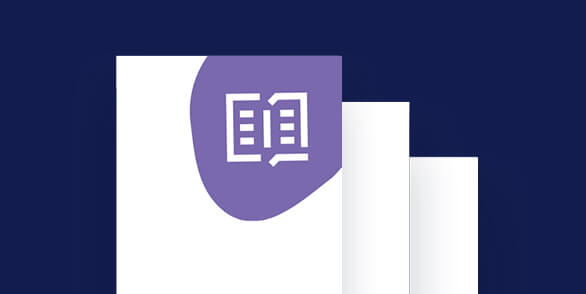Whether it's on-boarding a new customer or employee, managing day-to-day operations such as accounts payable, payroll and benefits, or streamlining other repetitive business tasks, clients look to their accountants for help and guidance.
Artificial intelligence, machine learning, and automation are top of mind for most businesses these days. In this highly competitive business landscape, the efficiency of an organization's processes can greatly affect its success and bottom line. Busy small business owners must find ways to level the playing field against larger, more established companies to stay viable in this incredibly competitive landscape. And according to a recent study by ADP®, more than 90 percent of them are looking to their most trusted, strategic advisors to help them – their accountants.*
Many accounting pros I meet around the country tell me that they are concerned about stepping into the role as a technology and process automation consultant because they don't feel that they have the skills to appropriately support their clients through this process. I tend to disagree. In fact, when we think about process automation, most of us think of engineers who are highly skilled in the inner workings of technology. But that really isn't the case at all.
I did some research on the skills listed in employment ads for both a staff accountant and a process engineer – and what I found was that the soft skills needed for both these positions were essentially identical! The only difference I found was that the process engineer listings almost always had a creative component to them, whereas the staff accountant listings did not. Accountants can't be creative, right? Wrong!
Accountants are natural problem solvers that must think outside the box constantly as they tackle the unique needs of each of their clients. I'm sure you have created many very creative workarounds for your clients throughout your career! The point I'm making is that accountants are naturally suited to step into the role as a process automation consultant because we have the analytical mind and desire for consistency and reliability of data.
All of the "big four" firms and many of the top 100 accounting firms are already providing their clients process automation advisory services. This is a big opportunity for smaller firms to add an additional and lucrative service offering.
Which processes should you automate?
Tasks that are suitable for automation share these characteristics:
- They are repetitive and consistent – tasks that use the same data and are handled the same way each time.
- Require no human intervention – a simple example is a confirmation email that is sent when an appointment is booked.
- Are high-volume and time consuming – make sure you consider the cost/benefit of implementing the automation! If I am setting up a really cool automation that happens infrequently – the cost of the technology and implementation could actually be more expensive than doing it manually.
Examples of tasks you can use tools to help automate are:
- Tracking and processing time – an employee fills out a time sheet, technology aggregates the time and sends it automatically to a payroll solution.
- Expense management – receipts are uploaded and automatically added to an expense report for reimbursement, or they are digitally read, coded and recorded in your accounting system.
- Employee on-boarding – an employee fills out forms online, and the data is automatically populated to the various apps the company is using.
- Recording payroll transactions – you can use a general ledger utility to map your client's payroll so it is automatically recorded in your accounting system every time a payroll is processed.
- Scheduling – scheduling apps automate the back-and-forth rigmarole by allowing clients to view your availability and book appointments themselves without any intervention from you.
These are just some examples of how technology can help automate time-consuming tasks so you can instead spend time building your clients' businesses and helping them become more profitable.
How can you get started?
- Start with something simple, like automating the recording of your clients' payroll entries or looking into automation features that may already exist in the applications you use (like email applications). Think about how much time auto-response or canned emails save you already; that is automation!
- Set aside time to tinker. The more you explore technology, the more comfortable you will become using it, and you will naturally start to think of ways you can automate repetitive tasks.
- Leverage the resources of your technology partners to learn more about automation options and resources available to you, like specialized training, webinars and certifications.



